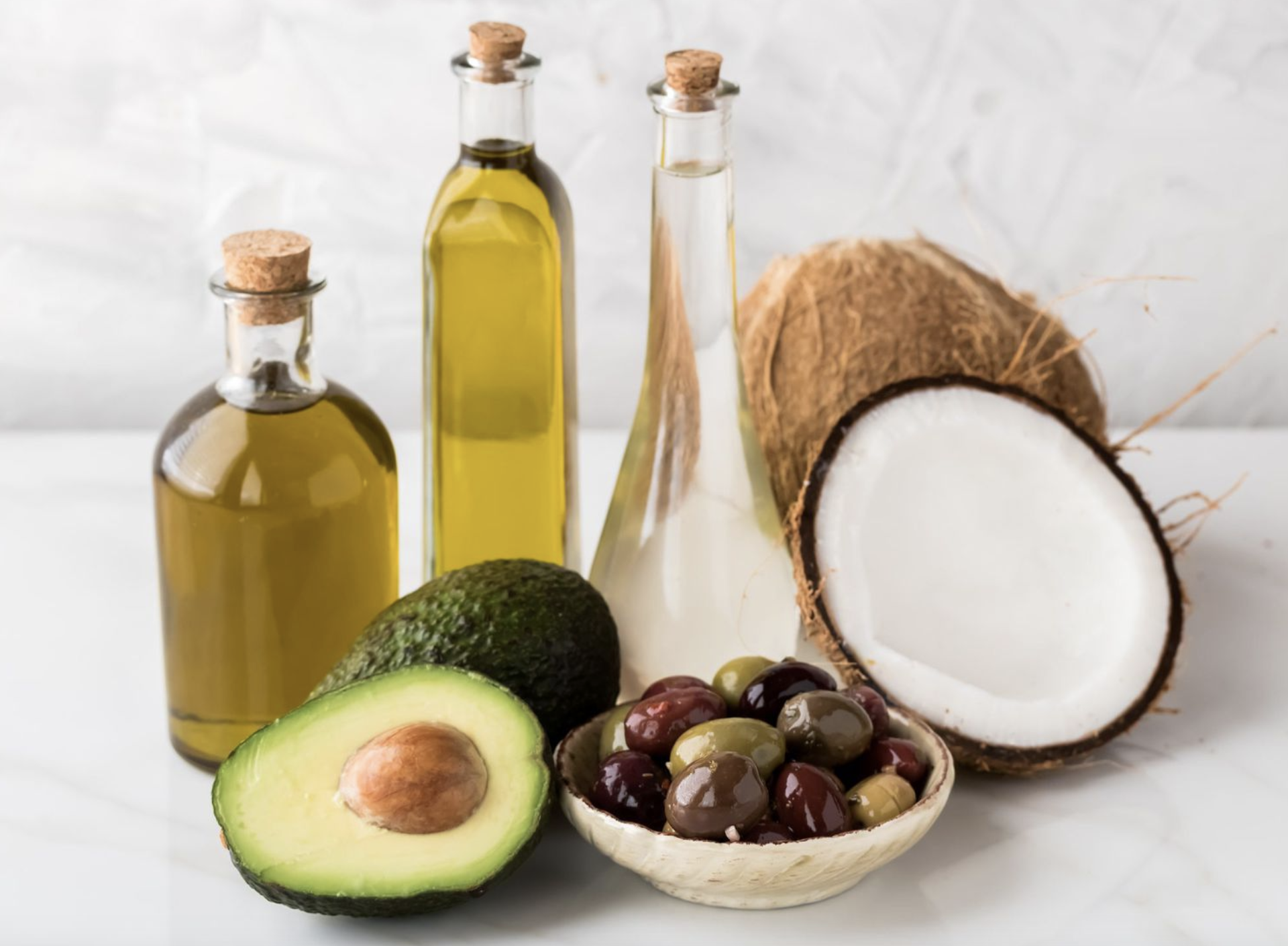Cooking oils
Cooking oils
Which cooking oils are better for our health? Are there some we should avoid? What to look for in a cooking oil?
What is the best criteria to choose the best oil for your cooking needs?
When choosing your cooking oil, there are a couple criteria to keep in mind: smoking point, fatty acid profile, type of processing, non-GMO and of course your taste preference.
Smoking point is one important thing to keep in mind.
That is the temperature at which the oil is no longer stable, it starts to oxidize and release free radicals. These compounds can have negative health effects, may cause cellular damage and lead to disease development.Trans fats are released during the breakdown of the oil and they can cause heart disease and other illnesses. Trans fats are also present in hydrogenated oils - like margarin and some refined vegetable oils. Avoid or reduce it in your diet as much as you can.
Avocado oil leads the way at a smoking point of 270C (520 F), making it ideal for high heat cooking.
Sunflower oil has a high smoking point, too: 230C (450F), also grapeseed oil.
Olive oil and coconut oil are perfect for medium to lower heats of up to about 205C (400F). Still suitable for most cooking, frying in the kitchen, just avoid burning it.
Fatty acid profile is also key when choosing your oils. Choose the ones high in monounsaturated fats and omega 3 fats, lower in omega 6 and saturated fats.
Olive oil, avocado oil are highest in monounsaturated fatty acids, the one that lowers your cholesterol.It is also rich in polyphenols, a cancer fighting agent that helps in heart-disease prevention.
Other oils high in monounsaturated fatty acids are safflower oil, the high oleic sunflower oil - but not the regular sunflower oil which is mostly polyunsaturated fats. Sunflower oil also benefits of high vitamin E content, promoting healthy skin
Grapeseed oil contains mostly omega 6 polyunsaturated fats that cause inflammation in high amounts, it is low in monounsaturated or omega 3 fatty acids.
Coconut oil contains the healthy saturated fats: medium chain triglycerides that raise HDL, the good cholesterol, powers up your brain cells and boosts sport performance.
Processing type is one important factor to consider. The less processed an oil is, the more nutrients it contains and the less harmful ingredients. Vegetable oils should be avoided due to being highly processed,containing high amounts of omega 6 polyunsaturated fats lacking essential nutrients, like polyphenols. Chemical extraction often creates trans fats in these oils and adds harmful ingredients that you definitely don’t want on your plate.
Conclusion:
Some of the best choices for oils in your kitchen are:
first cold pressed extra virgin olive oil - for low to medium heat,
avocado oil
high oleic sunflower
safflower oil
walnut oil
sesame oil
coconut oil
grapeseed oil is only recommended in smaller amounts due to its high omega 6 content which is inflammatory
peanut oil, for example has a high smoking point, but it is high in omega 6 polyunsaturated fats, making it inflammatory to the body
stay away from vegetable oils, like highly refined corn, soybean, canola oils, always use non-GMO products. They are bad for your health, cause inflammation and can lead to illnesses.
***Disclaimer: For informational purposes only. All opinions expressed are my own personal thoughts, based on my personal research as a Healthy lifestyle coach. Use it at your own discretion.

